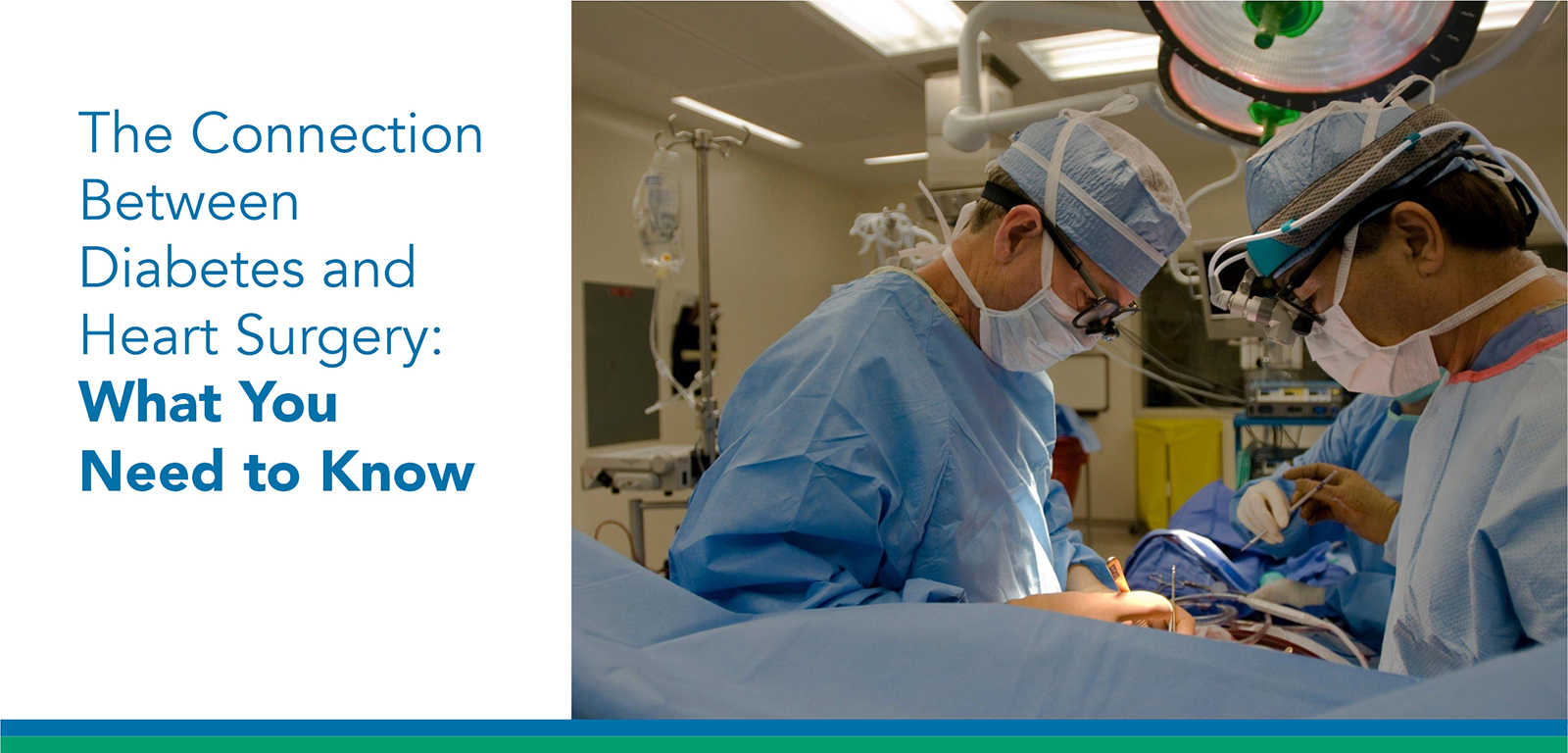The Connection Between Diabetes and Heart Surgery: What You Need to Know

Diabetes, often referred to as the 'silent killer,' is a chronic metabolic disorder that disrupts the body's ability to regulate blood glucose levels effectively. It does so by affecting the way insulin, a hormone responsible for controlling blood sugar, functions. Over time, uncontrolled diabetes can lead to a multitude of health complications, and one of the most pressing concerns is its direct correlation with heart diseases.
Diabetes and Heart Health: A Complex Tango
Diabetes doesn't discriminate; it affects people from all walks of life. Its prevalence is a global concern. Let us delve deeper into the intricate connection between diabetes and heart surgery, exploring the why, how, and what you should know.
Why Diabetes Increases the Risk of Heart Surgery
Diabetes, when left unmanaged, can inflict gradual damage to the heart and blood vessels. It significantly raises the risk of atherosclerosis, a condition characterized by the buildup of plaque in the arteries. This arterial plaque narrows the arteries, reducing blood flow to the heart muscle.
Additionally, diabetes can lead to the development of hypertension (high blood pressure) and dyslipidemia (abnormal levels of cholesterol and triglycerides). These factors contribute to an increased risk of coronary artery disease (CAD), a condition that often necessitates surgical intervention.
How Diabetes Affects the Heart Surgery Process
When diabetes enters the equation, heart surgery becomes a more complex undertaking. Here's a glimpse into how diabetes influences various aspects of cardiac surgery:
- Higher Surgical Risk: Patients with diabetes generally face a heightened risk during surgery. Their bodies may not respond as predictably to anaesthesia, and wound healing can be compromised.
- Challenges in Blood Sugar Management: Maintaining optimal blood sugar levels during and after surgery becomes paramount. Fluctuations in blood sugar can lead to complications, so close monitoring and adjustment of insulin or other medications are essential.
- Increased Risk of Infection: Diabetes can weaken the immune system, making patients more susceptible to post-surgery infections. Diligent infection control measures are crucial.
- Slower Recovery: Patients with diabetes may experience a longer recovery period following heart surgery. Comprehensive post-operative care and rehabilitation are vital to ensure a smooth recuperation.
- Importance of Preoperative Evaluation: Adequate preoperative assessment is crucial for patients with diabetes. Sterling Hospitals, Bhayli excels in this aspect, ensuring that all risk factors are thoroughly evaluated before the surgical procedure.
The Multidisciplinary Approach to Diabetes and Heart Surgery
Institutions understand that addressing the nexus of diabetes and heart surgery requires a multidisciplinary approach. They bring together a team of specialists, including cardiologists, endocrinologists, and cardiac surgeons, to formulate tailored treatment plans.
The doctors recognize that successful management of diabetes alongside heart surgery demands a meticulous focus on the following:
- Preoperative Optimization: Preparing the patient for surgery involves meticulous control of blood sugar levels, often requiring medication adjustments and lifestyle modifications.
- Intraoperative Vigilance: During surgery, continuous monitoring of blood sugar levels is crucial. Anaesthesia and surgical teams work together to ensure a stable environment.
- Postoperative Care: The journey doesn't end with surgery. Postoperative care involves close monitoring of wound healing, infection prevention, and the management of blood sugar levels.
- Cardiac Rehabilitation: Following surgery, a comprehensive cardiac rehabilitation program is tailored to the patient's needs. This includes exercise, dietary guidance, and ongoing support.
The Road to Recovery: Managing Diabetes After Heart Surgery
Recovery from heart surgery is a significant milestone. For individuals with diabetes, it's an ongoing journey that requires commitment and vigilance. Patients are encouraged to:
- Follow Medication Regimens: Consistently take prescribed medications to manage diabetes and other underlying conditions.
- Adopt a Heart-Healthy Diet: Nutrition plays a pivotal role. Embrace a diet rich in fruits, vegetables, whole grains, and lean proteins while limiting saturated fats and sugars.
- Stay Physically Active: Regular exercise is key to improving heart health and blood sugar control. Consult with healthcare providers for guidance on safe activities.
- Manage Stress: Stress can affect blood sugar levels. Employ stress-reduction techniques such as meditation, yoga, or mindfulness.
- Regular Check-Ups: Routine follow-up appointments with healthcare providers, including the best medical cardiac surgeon in Bhayli, are crucial for monitoring progress and addressing any concerns promptly.
In Conclusion
The intricate interplay between diabetes and heart surgery demands specialized care and attention. Understanding the connection between diabetes and heart surgery is the first step toward achieving a successful outcome. By embracing a multidisciplinary approach, meticulous preoperative evaluation, and comprehensive postoperative care, patients can embark on the road to recovery with confidence. It's a journey that requires dedication, but with the right team by your side, the path becomes clearer, and the future brighter.





